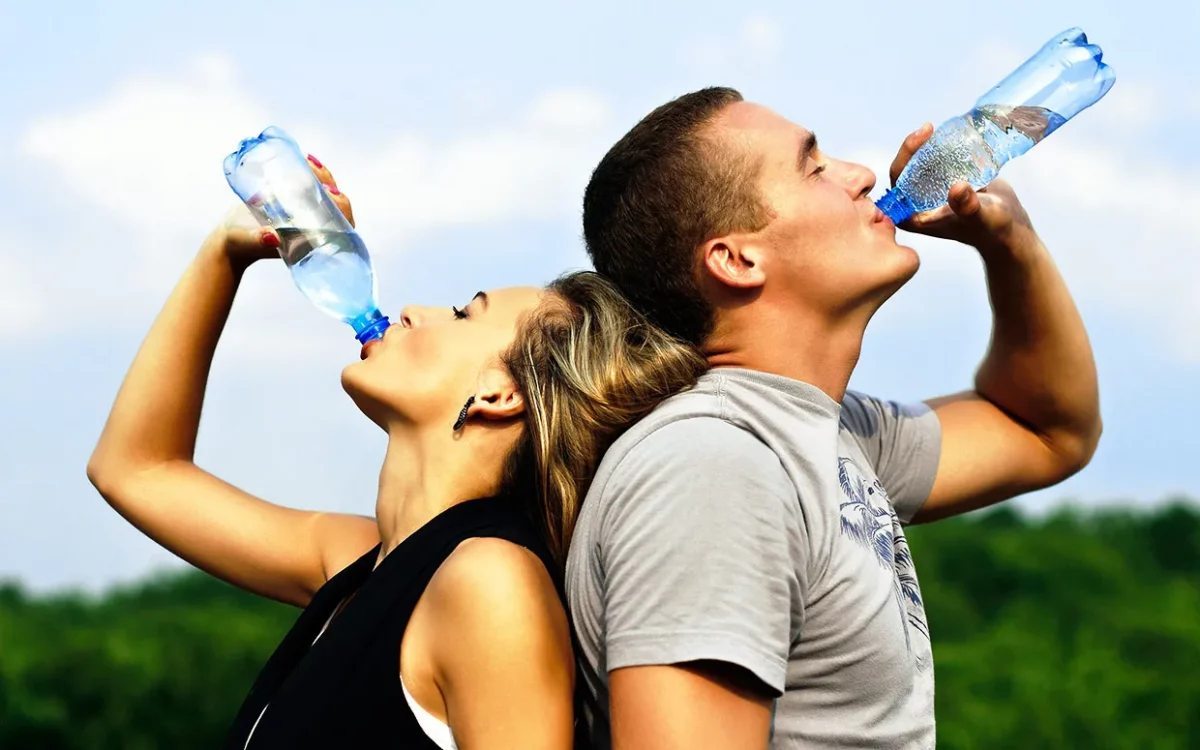The questions as to whether to drink water during training depends on the individual characteristics, the intensity of the classes, and even the weather.
Can I drink water while exercising? When and how much is it worth drinking? Why do we drink so much water?
There are several opinions on this. Some believe that drinking during training is categorically forbidden—others – what is possible and even necessary. Today we will debunk the myths on this topic and tell you if you can still take breaks during class to restore water balance.
Even very mild dehydration – 2% water loss – leads to decreased stamina and muscle power during exercise. Also, you can visit our site; at first, you must register on PlayAmo login and try to bet.
So is it still possible or not?
We sweat during prolonged physical exercise, so the word “can” is not suitable here – you need to drink. It is necessary to replenish the fluid level in the body 1: 1 to avoid dehydration.
Maintaining normal hydration levels during exercise and replenishing fluid loss with equal water is imperative to maximize exercise performance. After all, if you exercise in a state of dehydration, you use only 80-90% of your potential.
First of all, it is necessary to determine what kind of training we are talking about: training of a professional athlete, cardio training, or strength training. The duration of the session is also essential. The general rule is that drinking is possible and necessary for a long hard workout. In other cases, you can not drink; nothing terrible will happen.
But it is advisable to drink for a comfortable feeling and replenish the fluid lost with sweat and breathing.
How and when to drink correctly during exercise?
There is one crucial rule to follow: you should drink water during training when you are thirsty during your workout.
The average water consumption value is 30-40 ml per 1 kg of body. The minimum is 500 ml. But the exact amount will depend on the level of physical activity and environmental conditions.
The amount of water that you need to drink during a workout directly depends on the intensity of the load. The amount you drink should roughly replace the amount of water lost through sweat.
The rate of sweating, in turn, is influenced by a large number of factors:
- body size (large people tend to sweat more);
- fitness level (more athletic people tend to sweat earlier);
- genetics;
- air temperature (hot and humid air increases sweating);
- exercise intensity;
- wind (air currents cool the skin and reduce perspiration).
Therefore, everyone needs to calculate their water rate – everything is very individual.
Important! As is often shown in the movies, Dousing with water should not be. This can lead to discomfort and reduce the workout’s effectiveness.
Why is water balance important?
Water is an indispensable nutrient for every person. It performs essential functions in the body:
- is a part of cells and intercellular substance;
- dissolves most mineral salts and organic compounds;
- participates in most biochemical reactions;
- is part of all body fluids;
- is a part of blood and sweat, which ensure the redistribution of heat;
- provides the removal of the end products of metabolism from the body.
Lack of water can negatively affect your well-being. During exercise, fluid plays a critical role in maintaining blood volume, regulating body temperature, and helping muscles contract.
There is no need to torment yourself with thirst during physical activity. Remember a simple rule: if you maintain water balance, you will train more efficiently.








